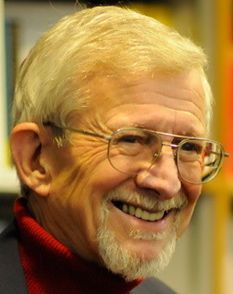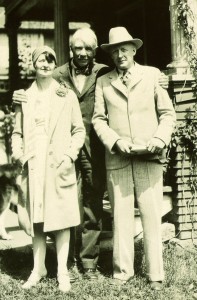Cornell creating Center for the Literary Arts
Drawing from the strength and rich history of its English department, next fall Cornell College will launch an academic enrichment program known as the Center for the Literary Arts.

The center will foster the cultivation of imaginative writing and communication across departments and disciplines.
Four donors have pledged nearly $100,000 over five years to fund the center.
Cornell President Jonathan Brand said the new center—joining several existing centers on campus—is another example of the way Cornell is innovating within the traditional liberal arts.
“The Center for the Literary Arts recognizes that writing is not just something done by English majors,” he said. “All students who have an interest in expressing themselves will benefit from the center and from interacting with the many writers we hope it will attract.”
For nearly 100 years, the English faculty have used creative writing to enrich liberal education and nurture talented young writers. Professor Clyde Tull (1915-1957) founded and edited the first literary journal at Cornell, The Husk, which published student work from 1922-1967. In 1968, Professor R.P. Dana continued that tradition by establishing the current student literary journal, Open Field. Dana, who was Iowa’s Poet Laureate from 2004 to 2008, also founded and served as editor-in-chief for the revived North American Reviewfrom 1964 through 1968, a magazine which had published such important writers as Walt Whitman and Mark Twain for 125 years until it ceased operation in 1940.
Throughout the 20th century, the department brought noted writers to campus, including Carl Sandburg, Saul Bellow, Robert Frost, and W. H. Auden.

The college’s Visiting Writers Series includes writers from the University of Iowa’s International Writing Program as well as award winning contemporary writers such as poet and essayist Mark Doty, poet Angie Estes and memoirist John Price.
And each year, the college hosts two Distinguished Visiting Writers-in-Residence. These authors teach courses and give readings throughout the year.
The program is being supported by alumni, and not just English majors. John Strawn ’61 was a history major, but also a dedicated reader. He said he believes the center will help attract high-quality students to Cornell.
“I think it’s an important thing for a place like Cornell to have,” he said.
Catharine Phelps Warmbrod ’51, an English major, said the college’s One Course At A Time calendar offers unique possibilities for visiting faculty who can teach an entire course in 3.5 weeks.
“The current One Course at a Time system provides an excellent opportunity to attract successful published authors and poets to campus for short periods to work with and inspire students,” she said.
Mike Conklin ’69, a politics major who was a reporter and columnist at the Chicago Tribune, said that there’s more of a need for good writing now than ever before, with so many sources of information.
“I hope this will fortify students’ writing ability, no matter what they want to go into,” he said. “As the school raises the profile of writing, everyone benefits.”
Mary Nakayama ’65, an education major, said she wanted to support the program because of the effect writing can have on people of all ages.
“I first witnessed the power of a well-crafted story when I began teaching elementary school,” she said. “A good story was clearly the most effective teaching tool available to me. Cornell’s Center for the Literary Arts gives me an opportunity to support authors who write for readers of all ages, but because of my teaching experience, I am especially eager to encourage those who want to create magic for children.”
As additional funding becomes available, the college is planning to add an Emerging Writer-in-Residence, a person who has recently completed an MFA program in writing and shows promise. The emerging writer will split his or her time between writing, teaching and administrative duties for the center, said Glenn Freeman, author, creative writing faculty and chair of the center’s operations committee.
“The emerging writer-in-residence position will make Cornell an attractive destination for writers and enhance an already strong program,” Freeman said. “The position, along with the center generally, shows our commitment to cultivating powerful, expressive writing and communication.”



